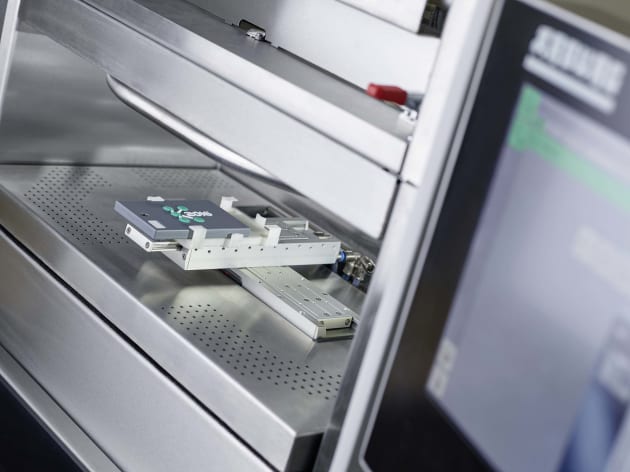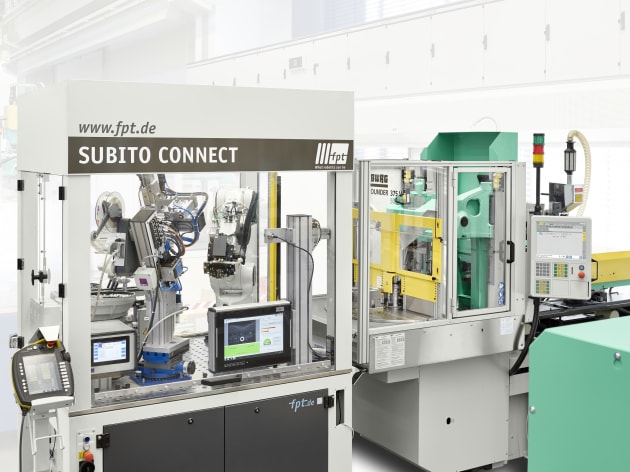The Industry 4.0 theme was all pervasive at K, dominating lectures and discussions but also evident on exhibitors' stands.
Machinery and plant equipment suppliers were keen to demonstrate how their products are able to be integrated into automated production lines, with control systems all speaking the same language and enabling data collection and analysis to drive production line efficiency, flexibility and optimal resource utilisation.
Commenting on this trend, Ulrich Reifenhäuser, Chairman of the K 2016 Advisory Board, said: "The possibilities the Internet of Things brings stimulates strong, serious interest – especially among younger, IT-savvy customers from throughout the world. Industry 4.0 is a theme of the future that will keep us busy for years to come."
For instance, thanks to digitalisation, process related improvements in live operation have a major potential for boosting production efficiency: it is now easier than before to combine moulded part design, construction and material properties with the different options provided by mould engineering and enhance these with the intelligence accumulated from process-controlled and temperature controlled production procedures.
Arburg (represented in Australia by Comtec Ipe) showed how a networked process combines injection moulding and additive manufacturing. As an example of an Industry 4.0 application, "smart" luggage tags were produced on the stand according to the principle of spatially distributed production in the smart factory.
The exhibit demonstrated flexible, automated, efficient production in batches as small as a single unit with Arburg 4.0 components. For the production of the personalised luggage tag, an Allrounder injection moulding machine was combined with a Freeformer for industrial additive manufacturing and the product was individualised on a customer-specific basis.
At the first station, an individual turnkey solution, consisting of an Allrounder 375 V and a flexible, space-saving robotic cell with integrated six-axis robot, produced the luggage tags in high volumes.The robot removed the finished ABS moulded part and fitted an NFC (Near Field Communication) chip. The use of the rotary table of the vertical moulding machine facilitates an efficient work process and short cycle times of around 30 seconds. The integration of the chip means that the product can save and communicate information.
At the next station of the flexible manufacturing process, the user selected a graphic motif for the design of the luggage tag and had his electronic e-business card (vCard) produced. The order data for the subsequent production sequence was stored on the NFC chip. The part itself thus becomes the information and data carrier, identifying itself at the various stations and controlling its continued manufacturing process. Each luggage tag was also assigned its own website in the cloud. This is also where all process and quality data recorded by the Arburg ALS host computer system are archived.

The third step involved lasering of 2D personalised data, such as name, address and QR code from the e-business card (vCard) onto the luggage tag. All of the part handling tasks were performed by an Integralpicker V with its own external Selogica controller.
In the fourth step, a Freeformer further individualised the luggage tag by additively applying the graphic motif selected at the first station in 3D using TPE plastic.
The last station was the central "Industry 4.0" information point. This is where the benefits of Industry 4.0 and the relevant business models were highlighted on the luggage tag, such as traceability and other data-protected actions, such as online ordering of brochures via the integrated NFC chip in the luggage tag.
Depending on the type of mobile device used, Arburg says, the contact data can be read out and stored either via the QR code or the NFC chip. This contains the individual URL address of the website for the relevant product, enabling all process and quality data to be traced on a 100 percent basis at all times.









